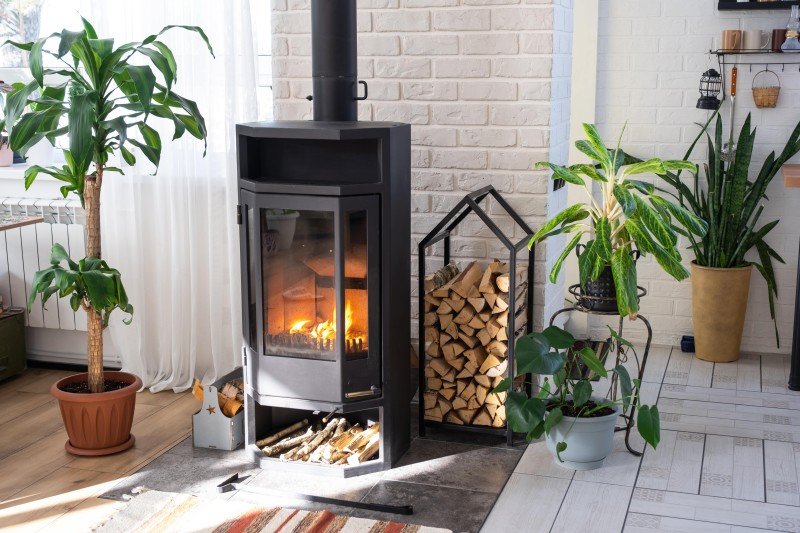10 Key Factors About Traditional Fireplaces UK You Didn't Learn In School
The Timeless Appeal of Traditional Fireplaces in the UK
Traditional fireplaces have actually long been essential to homes across the United Kingdom, transcending simple utility to become centerpieces of warmth, convenience, and aesthetic appeal. This post looks into the enduring appeal of traditional fireplaces, exploring their history, style variations, setup considerations, and their modern-day relevance.
Historical Significance of Fireplaces
The fireplace has actually played a central function in British homes since medieval times. Initially, they were necessary for heating and cooking. Over the centuries, with the introduction of central heating and technological advancements, fireplaces have actually transformed into symbols of heritage and design.
Secret Historical Milestones
Date
Turning point
Description
12th Century
Intro of Chimneys
Allowed indoor fireplaces to be typical, enhanced ventilation.
16th Century
The Renaissance influence
Fireplaces became more decorative, showing the era's styles.
18th Century
The Georgian Era
Established complex mantels made from wood and stone.
19th Century
Victorian Era
Introduction of cast-iron and tiled fireplaces.
20th Century
Decrease and Modern Design
Shift towards gas and electric, with some revival of traditional styles.
Types of Traditional Fireplaces
While contemporary designs concentrate on minimalism, traditional fireplaces typically exhibit complex craftsmanship and historical significance. Here are some popular kinds of traditional fireplaces frequently found in the UK:
Open Hearth Fireplaces
- Defined by a large opening and normally constructed from brick or stone.
- Provides a cozy atmosphere and the noise of crackling flames.
- Needs a correct flue to redirect smoke outdoors.
Wood-Burning Stoves
- Confined units that burn wood for heat, frequently featuring a glass door.
- More effective than open hearths, offering much better heat retention.
- Offered in numerous styles, from rustic to contemporary.
Cast Iron Fireplaces
- Popular in the Victorian era, known for elaborate styles.
- Long lasting and prominent for exceptional heat conduction.
- Usually function elaborate patterns or concepts, boosting visual appeal.
Tiled Fireplaces
- Typically embellished with decorative tiles, these fireplaces showcase creative style.
- Common in the 19th century, tiles can include scenes or floral styles.
- Normally coupled with wood or cast iron components.
Marble Fireplaces
- Prominent for their beauty, these fireplaces are normally tailor-made.
- Marble provides a glamorous surface and complements different interior styles.
- They need mindful setup due to their weight.
Table: Comparison of Traditional Fireplace Types
Fireplace Type
Heat Efficiency
Aesthetic Appeal
Upkeep Needs
Fuel Type
Open Hearth
Low
High
High (chimney cleansing)
Wood
Wood-Burning Stove
High
Moderate
Moderate (wood supply)
Wood
Cast Iron
High
High
Low
Wood/Gas
Tiled
Moderate
Extremely High
Low (if non-usable)
N/A
Marble
Moderate
Extremely High
Moderate
N/A
Factors to consider for Installing a Traditional Fireplace
Setting up a traditional fireplace can enhance a home's character however comes with specific factors to consider. Here are some points homeowners ought to remember:
Building Regulations: Always inspect local structure codes and policies. Installation may need consent, particularly if structural adjustments are required.
Product Selection: Choose materials that match the home's architecture and individual style. Consider practicality alongside visual appeal.
Ventilation: Ensure appropriate ventilation through a chimney or flue to avoid smoke and gases from accumulating inside your home.
Security Precautions: Install carbon monoxide gas detectors and ensure all safety steps remain in location, particularly if utilizing wood-burning options.
Expert Installation: Engage a certified professional to guarantee safe and effective installation, complying with safety requirements.
Benefits of Traditional Fireplaces
In spite of the rise of modern heating services, traditional fireplaces stay precious for several factors:
Aesthetic Charm
- Adds character to any space.
- Serves as a social focal point, improving events.
Psychological Comfort
- Provides heat not just physically however emotionally.
- Produces a cozy environment suitable for relaxation.
Value Addition to Property
- Boosts the appeal of a home to potential purchasers.
- Typically increases property value due to their desirability.
Environmental Considerations
- Wood can be a renewable resource when sourced sustainably.
- Traditional fireplaces can contribute less to energy bills compared to electric systems.
Often Asked Questions (FAQs)
1. Are traditional fireplaces energy efficient?
While traditional fireplaces may not be as energy-efficient as modern heating unit, enhancements in style, such as the setup of glass doors, can improve their effectiveness. Wood-burning ranges are particularly understood for being more effective than open hearths.
2. How frequently should traditional fireplaces be cleaned up?
Chimneys ought to be inspected and cleaned at least when each year, particularly if the fireplace is utilized regularly. This prevents creosote accumulation, which can lead to chimney fires.
3. Can I use a traditional fireplace for gas heating?
Yes, traditional fireplaces can frequently be converted to use gas. This involves setting up a gas line and might require a conversion kit depending on the fireplace design.
4. What are the best fuels for wood-burning fireplaces?
Experienced hardwoods such as oak, hickory, or maple are advised for wood-burning fireplaces as they burn hotter and longer than softwoods.
5. Can traditional fireplaces be utilized in modern homes?
Absolutely! Lots of modern styles incorporate traditional components, permitting for a harmonious mix of styles. Additionally, Best Fireplace Online can add a special touch to contemporary homes.
From their historical significance to their modern-day relevance, traditional fireplaces stay an ultimate function in numerous UK homes. Fireplaces Near Me -lasting appeal is not just rooted in their performance however also in the heat and beauty they provide. Whether one opts for a classic open hearth or a perfectly tiled fireplace, the choice contributes to creating a welcoming environment where memories can be made. As house owners become more mindful of visual appeals and fond memories, traditional fireplaces are poised to maintain their allure for generations to come.
